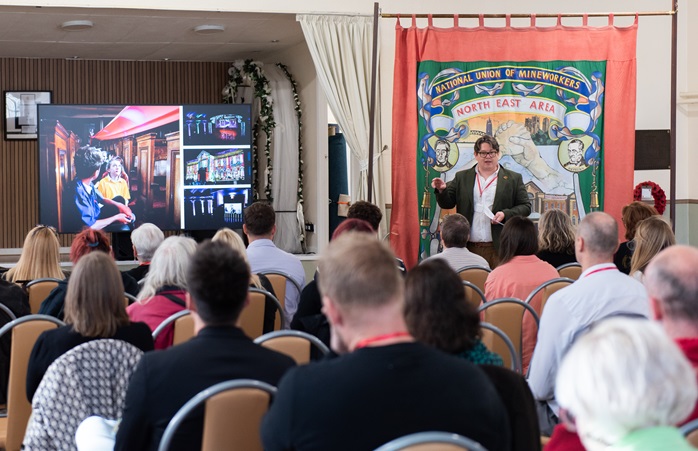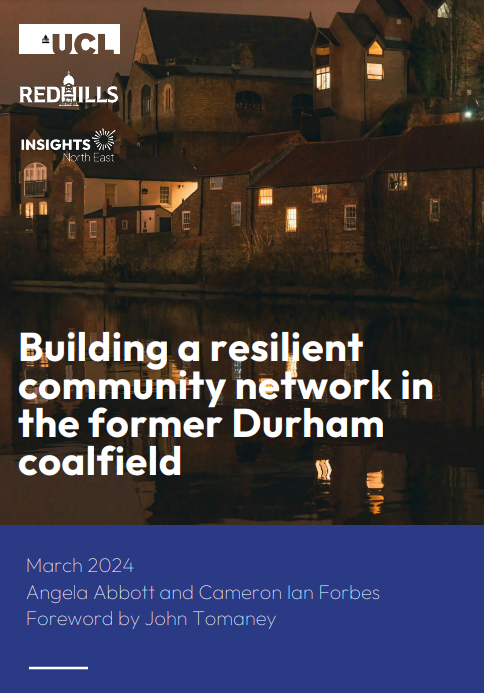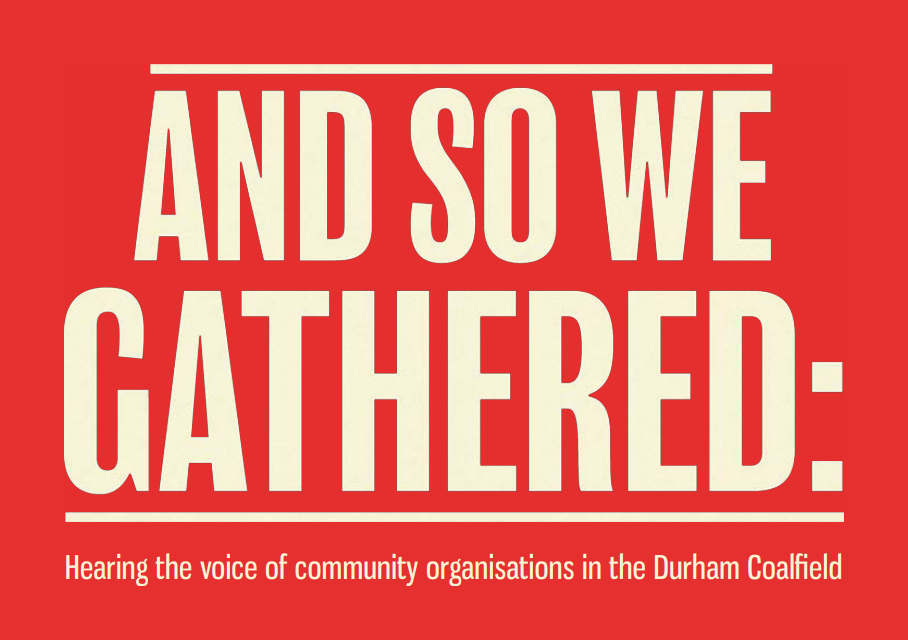Sharing the findings from the Insights North East report in a visually impactful, easy-to-read and usable format.
A report has been developed to present the findings of joint work between Insights North East, University College London (UCL) and Redhills Durham relating to the state of community organisations in the former coalfield today.
Hall. The research addresses:
- What are the range of activities undertaken by community organisations today?
- What are the challenges and obstacles faced by community organisations?
- What might done to address these obstacles?
- How might universities better help community organisations to meet their ambitions?
Working with Charlotte Solly, a recent graduate based in County Durham, we are thrilled to share our executive summary of the Impact North East report. This report was the result of interviews and research, which several of you contributed directly to – it was presented as a work-in-progress at the Little Big Meeting last year and is now ready for publication.
Our summary is designed to capture what we learned from the report and bring it together with some of the discussions and outcomes of our event. Maeve Minns, who works on the Redhills / UCL partnership programme, has reviewed the report and provided a snapshot in a way that we hope is relevant to your organisations and communities.

The main Insights North East Report:
This report addresses the challenges facing community organisations based in former mining villages and towns in the Durham Coalfield. This former coalfield contains communities with high levels of multiple deprivation. There are a number of organisations at the frontline meeting pressing needs, filling in the gaps left by the withdrawal of central and local government services.
The report is based on interviews with representatives from a number of these organisations to better understand their challenges and to assess the potential role of Redhills Durham Miners’ Hall in assisting them. It identifies the nature of the funding crisis facing community organisations as grants and other sources of income have declined. It shows how this recurring short-term funding crisis is preventing long-term planning and hindering their ability to meet needs in their communities. It also identifies the lack of measures to support the work of staff and volunteers to prevent their burnout. A key finding is the need to improve the evidence base so that these organisations can better communicate what they do and the difference they make.

The report includes a number of actionable insights, suggesting practical measures that can help to address the problems identified, and the potential role of Redhills in supporting and providing resilience in the former coalfield communities. Redhills can provide a space which allows organisations to come together, learn and share good practice; a space for influencing policymakers; a space for building trust between funders and communities. The report finishes with a detailed checklist and timeline for developing a proposal on these lines.

